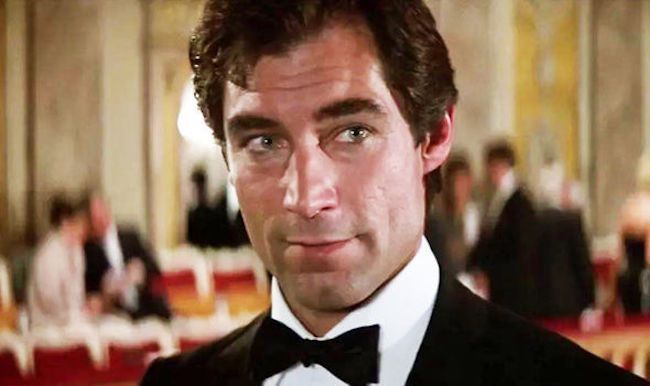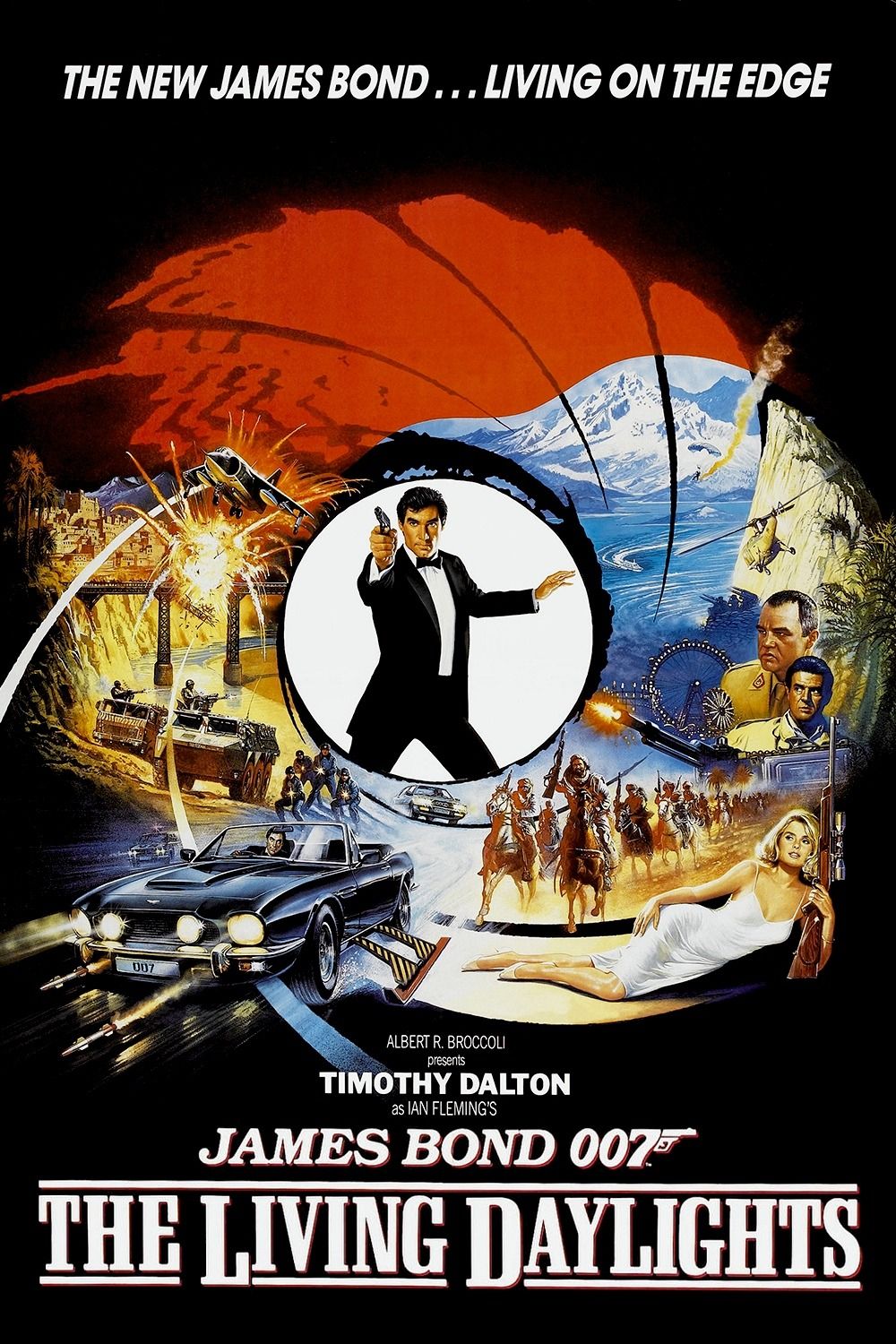
@TheBelser
Previously in Part 8…
We talked of the ‘oh so refined‘ Sir Roger Moore. Moore was the Bond for most of the 70’s and early 80’s. Roger’s films were fantastic to the point of becoming a parody of themselves. When you end up with underwater cities and a space laser battle, where else is there to go except back to Earth?
An internal decision was made by the producers to bring Bond back to his gritty roots in the 80’s. With Roger Moore retired, the next actor in line brought an intensity to the role that was really before its time. The actor in question? Timothy Dalton.
TIMOTHY DALTON
Tenure as Bond: 1986–1994

A new worldwide search for a new actor to play James Bond began after the retirement of Roger Moore in 1985. The producers saw a number of actors, including future stars Sam Neill and Pierce Brosnan auditioning for the role in 1986. The final two actors considered by Eon were Timothy Dalton and Brosnan .
Unfortunately, Brosnan was eventually ruled out due to a dispute with his Remington Steele contract with NBC. As a result, Dalton was appointed as the new James Bond in August 1986 on a salary of $5.2 million. In preparing for the role, Dalton, a classically trained theater actor, wanted to portray the character as accurately as possible, reading up extensively on the original Ian Fleming books before his role in The Living Daylights (1987).

Dalton’s Bond was the serious one: dark, cold, emotional, stern, ruthless, showing little humor, focused as a killer with little time for fun and indulgence. Dalton himself stated his version of the character came from “a desire to see a darker Bond, one that was less of a womanizer, tougher and closer to the darker character Ian Fleming wrote about“.
James Chapman also considered Dalton closer to Fleming’s Bond than the previous actors, writing that Dalton was “clearly less comfortable … with the witty asides and one-liners … so he becomes something closer to the Bond of the books, who rarely develops a sense of humor“. Dalton’s portrayal was once described as “the suffering Bond“.
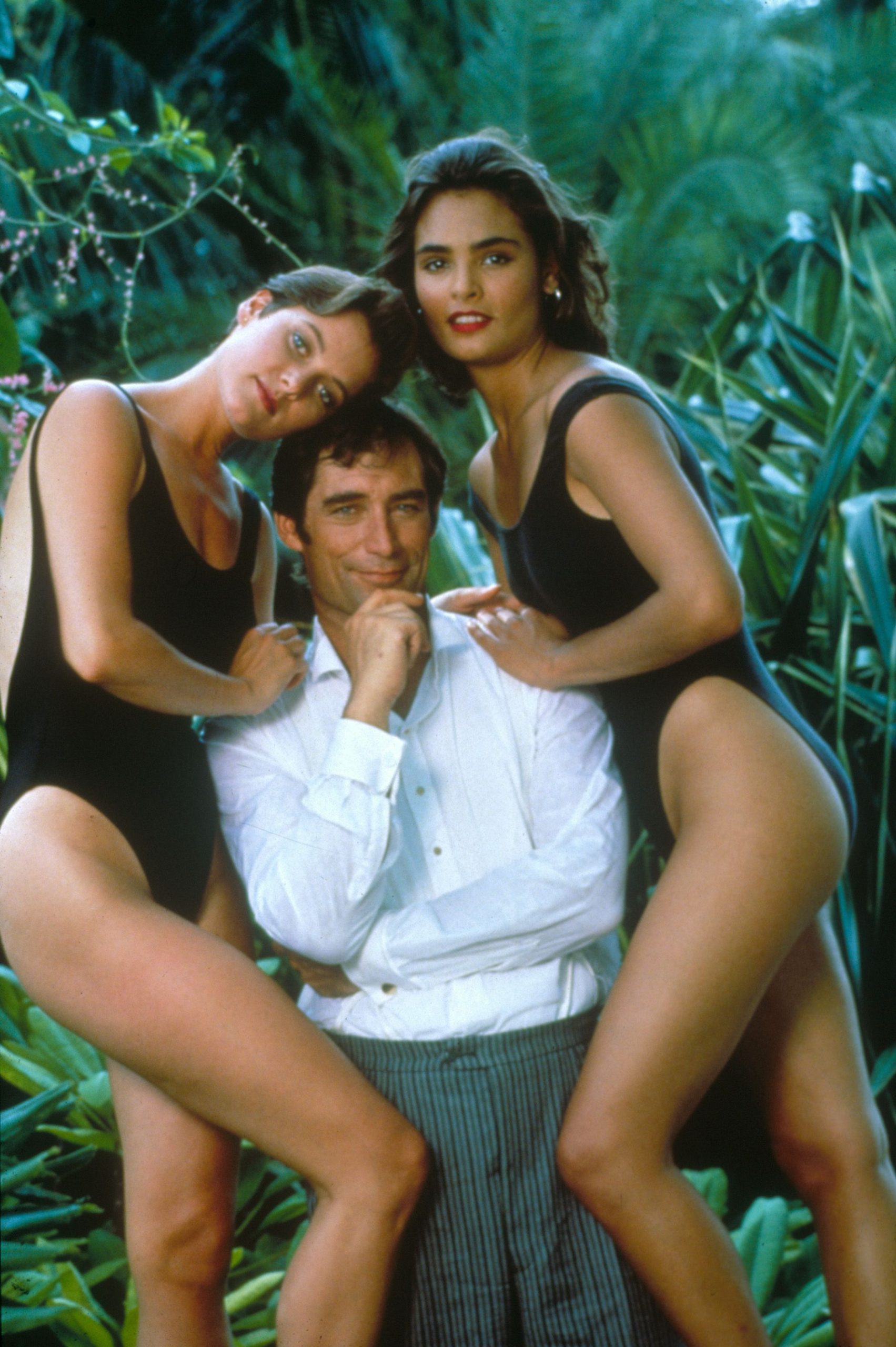
Although Bond screenwriter Richard Maibaum named Connery’s version as the best Bond, he considered Dalton “the best actor of the four he worked with”. His predecessor, Roger Moore, also felt that Dalton was “the best actor to play Bond”.
Director John Glen also felt that Dalton was the best actor that portrayed Bond, and that “he was ahead of his time”, noting the comparisons between the current Daniel Craig incarnation to that of Dalton’s.
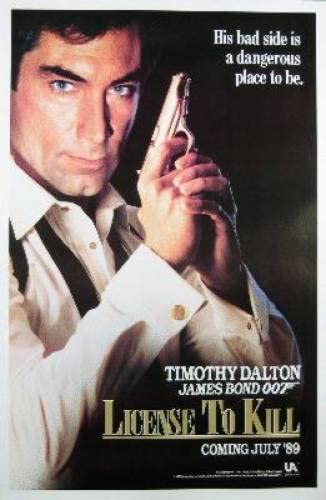
Dalton’s films did not perform as well at the box office as most of the previous films. Screen International considered the Bond series had run its course in the age of 80’s action franchises such as Indiana Jones and Lethal Weapon. Edward P. Comentale observed that “Dalton, for all his occasional flat northern vowels, was probably too much the stage actor to be convincing as an action hero in the age of Willis, Schwarzenegger and Stallone.”
After just two films—The Living Daylights and License to Kill—litigation ensued over the licensing of the Bond catalog, delaying what would have been Dalton’s third film by several years. His six-year contract expired in 1993. While on the set of the TV movie Scarlett (1994), Dalton officially announced his resignation from the role of James Bond on April 11, 1994.
BOND FACTS
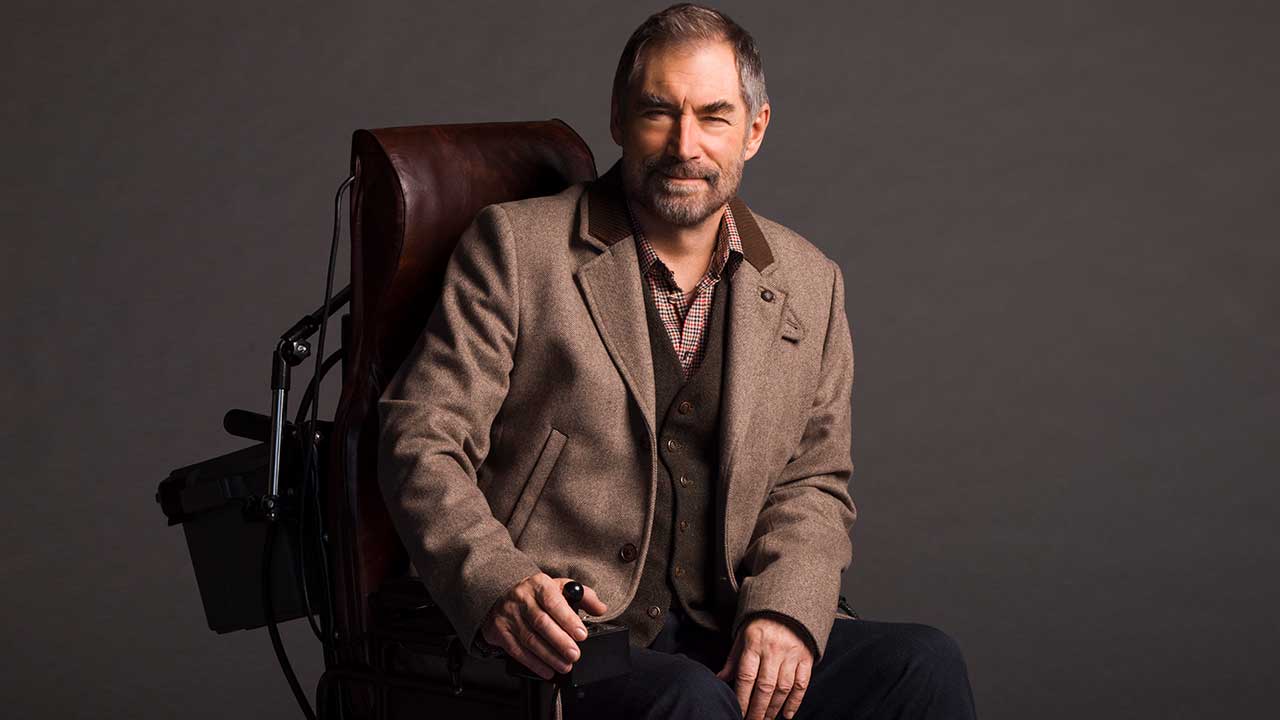
- When he was 25 years old, Dalton had discussed playing Bond with Albert Broccoli, but decided he was too young to accept the role, thinking Bond should be played between 35 and 40 years old.
- In the Charlie’s Angels (1976) episode “Fallen Angel“, Dalton’s character, Damien Roth, is referred to as being like James Bond, which was 8 years before Dalton’s first Bond outing.
- His favorite James Bond film is From Russia with Love (1963).
- He was considered to voice Mufasa in the Disney epic The Lion King (1994), which went to James Earl Jones.
- Only Bond actor never to be married. Moore was married four times and the rest twice each.
- Dalton’s Bond was the last to smoke cigarettes.
Best Bond Film: The Living Daylights
Synopsis: James Bond is sent to investigate a KGB policy to kill all enemy spies and uncovers an arms deal that potentially has major global ramifications.
- This was the last Bond film to be scored by John Barry.
- This was the last James Bond film to use an original Ian Fleming title until Casino Royale (2006), a gap of almost twenty years.
- This was the first official James Bond film not to feature Lois Maxwell as Miss Moneypenny.
- Christopher Reeve turned down a million-dollar offer by Albert R. Broccoli to play Bond in this film. Had he accepted, he would have been the only American to play the role in the official EON film series.
- This was the first Bond film to feature a different song over the closing credits. It was called “If There Was a Man” and was performed by The Pretenders who sang two songs for the movie, the other being “Where Has Everybody Gone?”
- This film features the only deliberate nude scenes in the James Bond film franchise outside of opening titles. They are when two men escape from a bombed building, and when Pushkin’s girlfriend’s top is torn off in a hotel room.
- Final Bond movie to date to show a bevy of women scene. Here it was a swimming pool full of girls in bikinis at Brad Whitaker’s mansion.
- Prince Charles and Princess Diana visited the set and attended the film’s premiere on 29 June 1987 at the Odeon Leicester Square in London.
Next time, we’ll get into the 90’s and the man that almost beat out Timothy Dalton as Bond, Pierce Brosnan.
James Bond Will Return in: PIERCE THE POSH BOND!
-JaDarrel Belser

